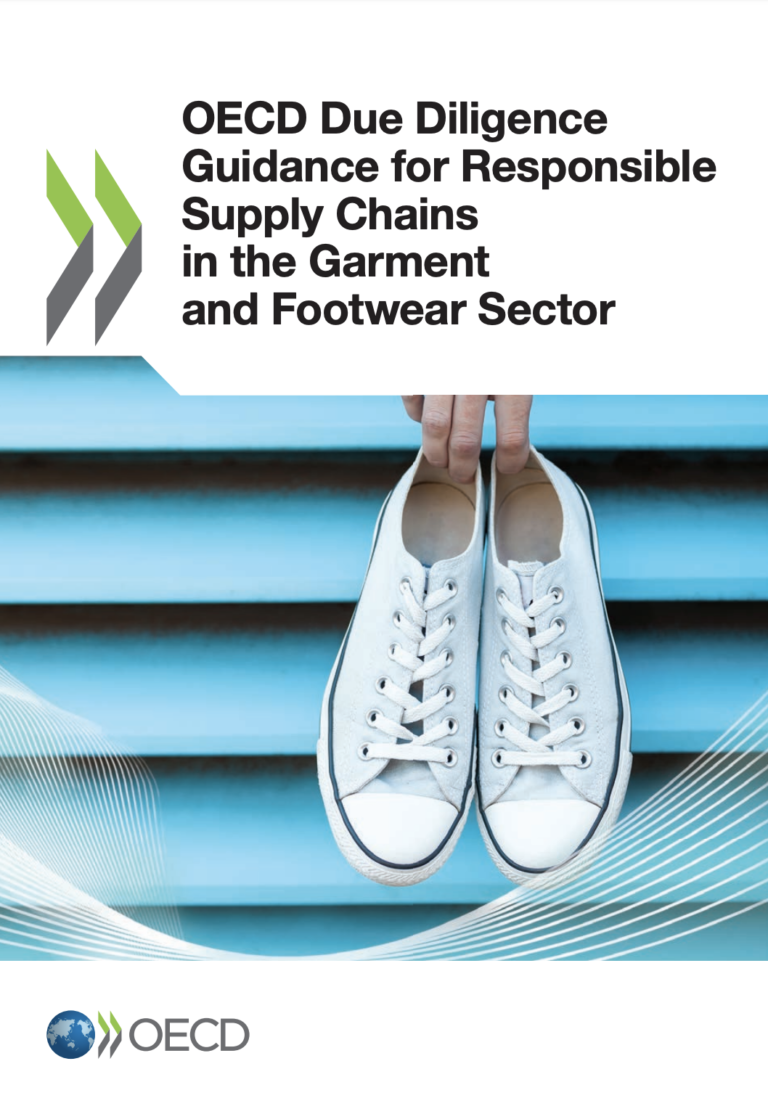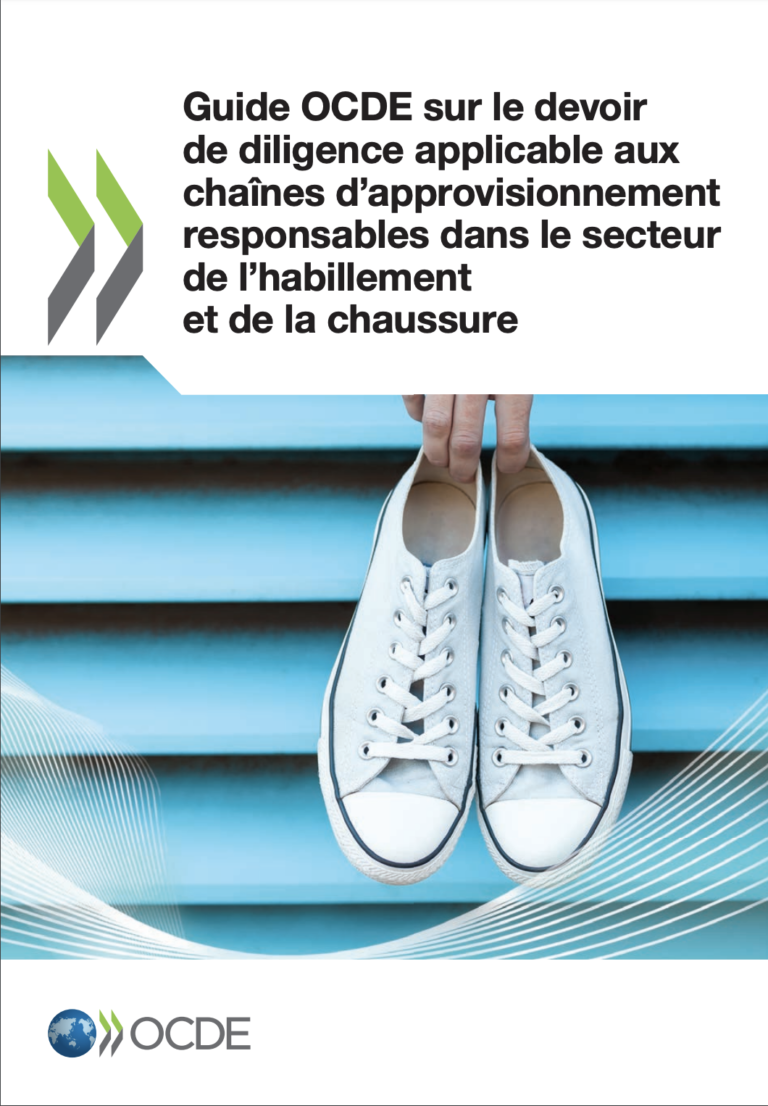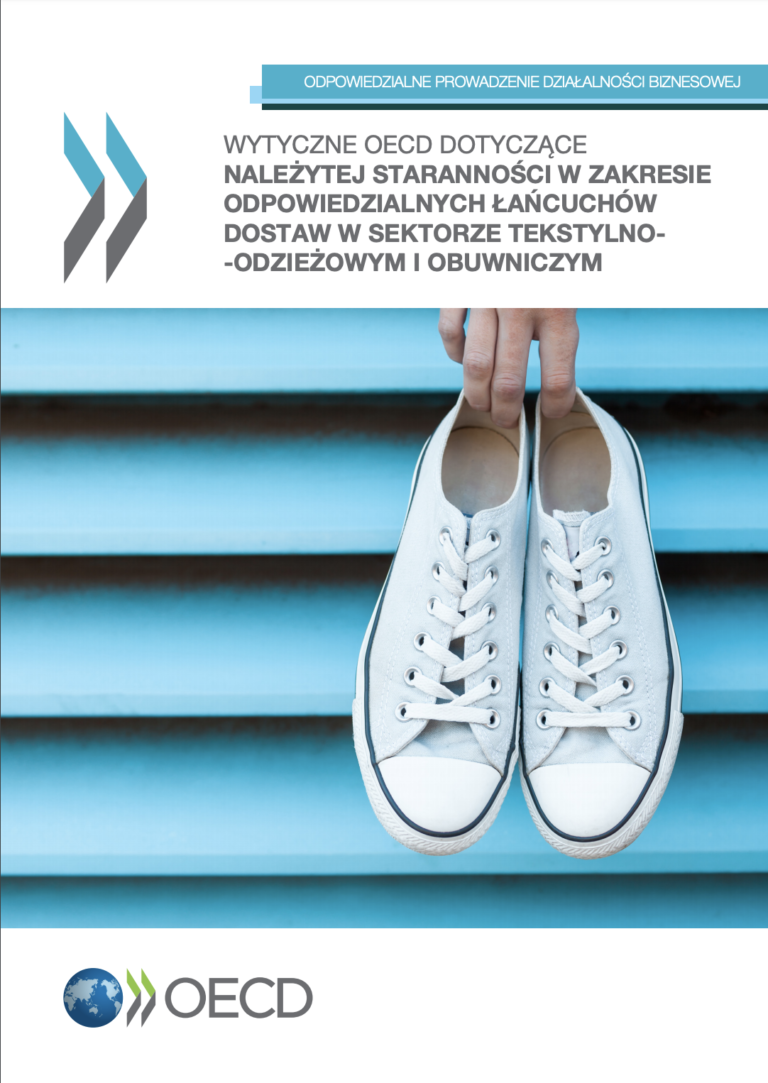The OECD Due Diligence Guidance for Responsible Supply Chains in the Garment and Footwear Sector helps enterprises implement the due diligence recommendations contained in the OECD Guidelines for Multinational Enterprises along the garment and footwear supply chain in order to avoid and address the potential negative impacts of their activities and supply chains. It supports the aims of the OECD Guidelines to ensure that the operations of enterprises in the garment and footwear sector are in harmony with government policies to strengthen the basis of mutual confidence between enterprises and the societies in which they operate.
This Guidance will also support enterprises to implement the due diligence recommendations contained in the UN Guiding Principles on Business and Human Rights. The Guidance is aligned with the International Labour Organization’s (ILO) Declaration on Fundamental Principles and Rights at Work, relevant ILO Conventions and Recommendations and the ILO Tripartite Declaration of Principles Concerning Multinational Enterprises and Social Policy. Together with its modules on due diligence for specific risk areas, this Guidance provides enterprises with a complete package to operate and source responsibly in the garment and footwear sector.
This Guidance was developed through a multi-stakeholder process with in-depth engagement from OECD and non-OECD countries, representatives from business, trade unions and civil society and was overseen by the Working Party on Responsible Business Conduct. It is practically-oriented, with an emphasis on collaborative constructive approaches to complex challenges. The Guidance builds on the in-depth reports of the National Contact Points (NCPs) of France and Italy on the implementation of the OECD Guidelines in the textile and garment sector and responds to statements made in June 2013 and 2014 by NCPs following the tragic collapse of Rana Plaza.
The guidance is also available in French, Chinese, and Polish (see below).




